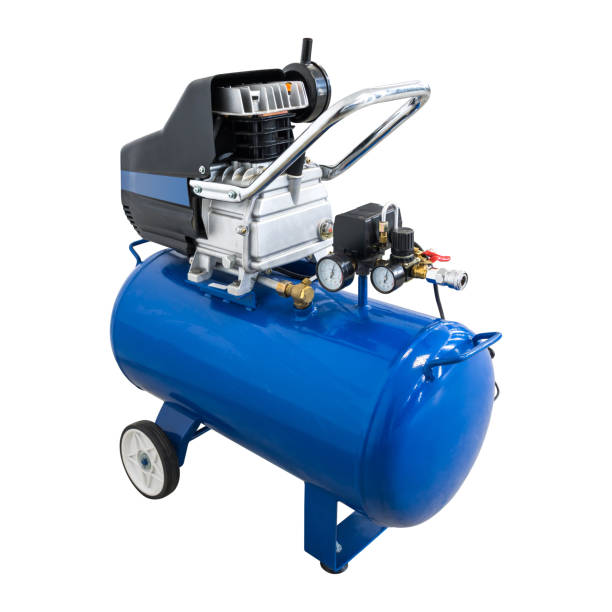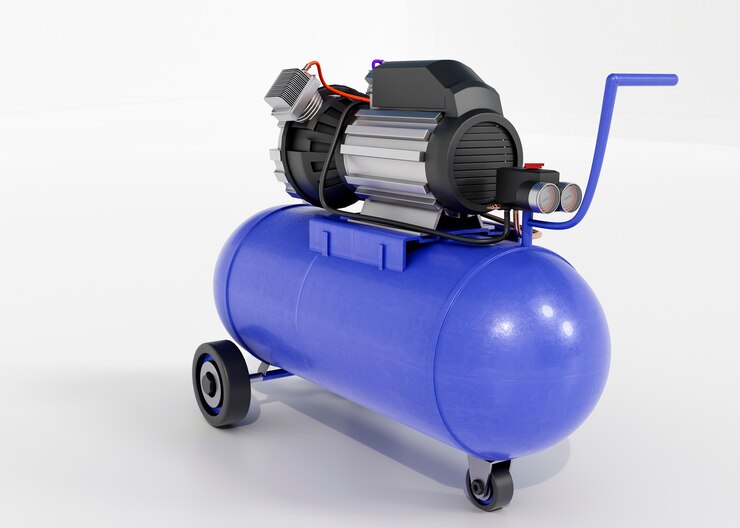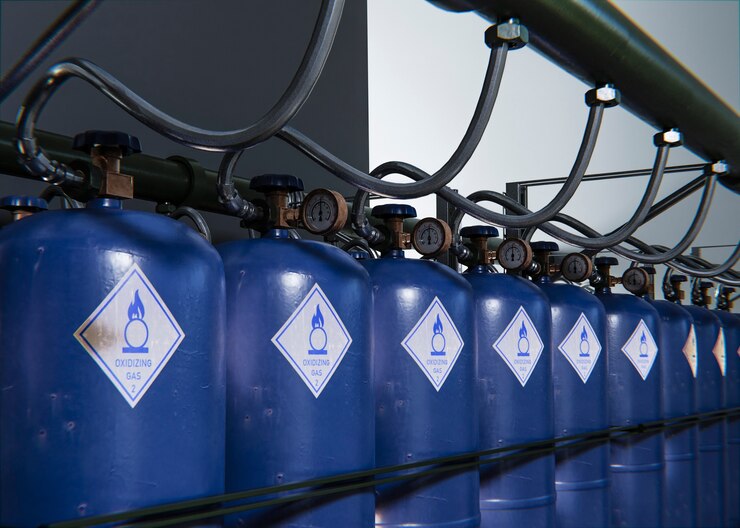The Ultimate Guide to CNG Gas Filling Station Compressor
The Powerhouse of Clean Fuel: A Comprehensive Guide to CNG Gas Filling Station Compressor:
The use of compressed natural gas (CNG) as a cheaper and greener fuel substitute for conventional gasoline and diesel is growing quickly. For CNG-powered vehicles to be widely adopted, a strong network of CNG Gas Filling Station Compressor is essential. The compressor of the CNG gas filling station is the fundamental component of these stations. This article explores the types, functions, advantages, and important factors to take into account for different audiences as it digs deep into the world of CNG compressors.
Understanding CNG and its Rise in Popularity:
The main fuel of compressed natural gas (CNG) burns cleaner than gasoline and diesel. It helps create a cleaner environment by emitting fewer pollutants and greenhouse gases. Furthermore, CNG frequently has lower costs than conventional fuels, providing major financial benefits to both individual customers and enterprises.
The market for compressed natural gas is expanding due to rising environmental concerns and volatile fuel prices. Policies and incentives are being implemented by governments throughout the globe to encourage the use of CNG automobiles. Due to the increase in demand, a strong network of CNG filling stations with dependable and effective compressors is required.
The Need for CNG Infrastructure:
A strong network of CNG filling stations is necessary for the widespread use of CNG cars. For seamless operation, these stations mainly rely on dependable and effective CNG filling station compressors. In the following part, let’s examine these crucial elements in more detail.
The Workhorse of CNG Stations: The CNG Gas Filling Station Compressor
An essential component of these stations’ functionality is the compressor for CNG gas filling stations. It compresses natural gas at low pressure from the pipeline to a significantly greater pressure, usually between 200 and 360 bar (2900 and 5200 psi). After that, the compressed gas is kept in high-pressure tanks and supplied to CNG cars via special fuelling lines.
The Powerhouses of CNG Stations: Compressor Types
The CNG gas filling station compressor is the key component of a CNG filling station. These workhorses compress low-pressure natural gas to the high pressure required for car fuelling. In CNG stations, there are three primary types of compressors, each with unique advantages and uses:
- Reciprocating Compressors:
The most popular kind of compressors is reciprocating ones, which compress gas using pistons that move back and forth inside a cylinder. They are appropriate for a variety of station sizes due to their reputation for dependability and flexibility at different flow rates.
- Centrifugal Compressors:
These compressors can handle large volumes thanks to their fast-rotating impellers. They work well for big stations with lots of traffic, however, extra equipment might be needed to regulate the pressure.
- Screw Compressors:
They compress material using intermeshing screws. They are a flexible alternative since they provide a good balance between flow rate and efficiency. When compared to other kinds, they can be louder, nevertheless.
The capacity of the station, the necessary flow rate, the budget, and the noise level all play a role in the compressor selection. We’ll examine a CNG compressor’s operation and some of its advantages in the next section.
The Magic Behind the Pump: How CNG Filling Station Compressors Work:
Compressors used at CNG gas filling stations are essential to providing clean fuel to your car. This is an overview of their intriguing business model:
- Intake:
The process starts when pipeline-borne low-pressure natural gas enters the compressor.
- Compression:
The essential role is compression! Depending on the kind, the compressor uses its internal mechanisms (pistons, impellers, or screws) to raise the gas pressure considerably.
- Cooling:
Heat is produced by compression. The compressed gas is sent through a cooling system to eliminate extra heat to guarantee safe storage.
- Discharge:
Next, storage tanks receive the cooled, high-pressure CNG. It travels from these tanks to the dispensing unit, which is where your CNG car gets fueled.
Strong safety elements are included in CNG compressor systems to guarantee dependable and secure operation. Leak detection methods, temperature monitoring systems, and pressure relief valves are some of these characteristics.
Benefits of reciprocating compressors in CNG stations:
Compressors used in CNG gas filling stations are the foundation of a hygienic and effective CNG fuelling system. Apart from their primary use, these compressors have other advantages:
- Cleaner Air:
Compressors enable the use of compressed natural gas (CNG) and minimize hazardous emissions as compared to conventional fuels. Everyone will benefit from a healthier atmosphere as a result.
- Savings:
Generally speaking, CNG is a more affordable fuel choice. Compressors are essential to the availability of this cleaner gasoline, which might save fuel suppliers and users money.
Energy Efficiency:
Contemporary CNG compressors are built to be as efficient as possible, using the least amount of energy possible when in use. For station owners, this means fewer running expenses.
- Dependable Performance:
Because CNG compressors are designed to operate dependably, CNG cars will always have access to fuel.
- Scalability:
Compressor systems are adaptable enough to accommodate the various requirements of stations of various sizes. Future growth and flexibility are made possible by this.
- Focus on Safety:
Security comes first. Compressors are outfitted with advanced safety mechanisms to guarantee dependable and secure functioning.
Looking Ahead:
It is anticipated that demand for CNG will keep growing. Compressors used in CNG gas filling stations will be essential to the expansion of this clean fuel choice. We’ll go over some important factors to think about while selecting the best compressor for your particular requirements in the next section.

Selecting the Right Powerhouse: Choosing a CNG Filling Station Compressor:
To guarantee optimum performance and long-term value, carefully evaluate several variables when choosing the best CNG gas filling station compressor. Here are a few crucial elements to consider:
- Capacity and Flow Rate:
The compressor should have enough capacity to accommodate the number of cars that are expected to fill up at your station. Examine your anticipated demand and select a compressor that can either meet or surpass your requirements.
- Budget:
The purchase of a CNG compressor is an expensive one. Selecting a solution that satisfies your needs and meets your budget is essential.
- Maintenance Requirements:
The upkeep requirements for various compressor models differ. When choosing, take maintenance costs and simplicity of use into account.
- Noise Restrictions:
There can be noise limits in some places. To keep yourself out of trouble with the law, use a compressor that runs at acceptable noise levels.
Partnering for CNG Success: LEIYAO Compressor:
For your CNG gas filling station to operate as profitably and efficiently as possible, choosing the correct compressor is essential. We at LEIYAO Compressor are aware of how crucial dependable and effective CNG compressors are.
To meet different station demands and budgets, we provide a wide selection of CNG compressors, including [name particular types of compressors you provide]. The essential advantages of our compressors, such as their silent operation, longevity, and efficiency, are well-known. Furthermore, we offer first-rate customer service, making sure you have the tools and know-how to properly manage your CNG fuelling infrastructure.
Conclusion:
A dependable partner is essential when picking the best CNG gas filling station compressor. One notable supplier of reliable, durable, and high-quality CNG compressors is LEIYAO Compressor. Explore the extensive selection of CNG gas filling station compressors available from our website by visiting today.



